Rivers of Asian craft liquor flowing to Singapore
Sign up now: Get ST's newsletters delivered to your inbox
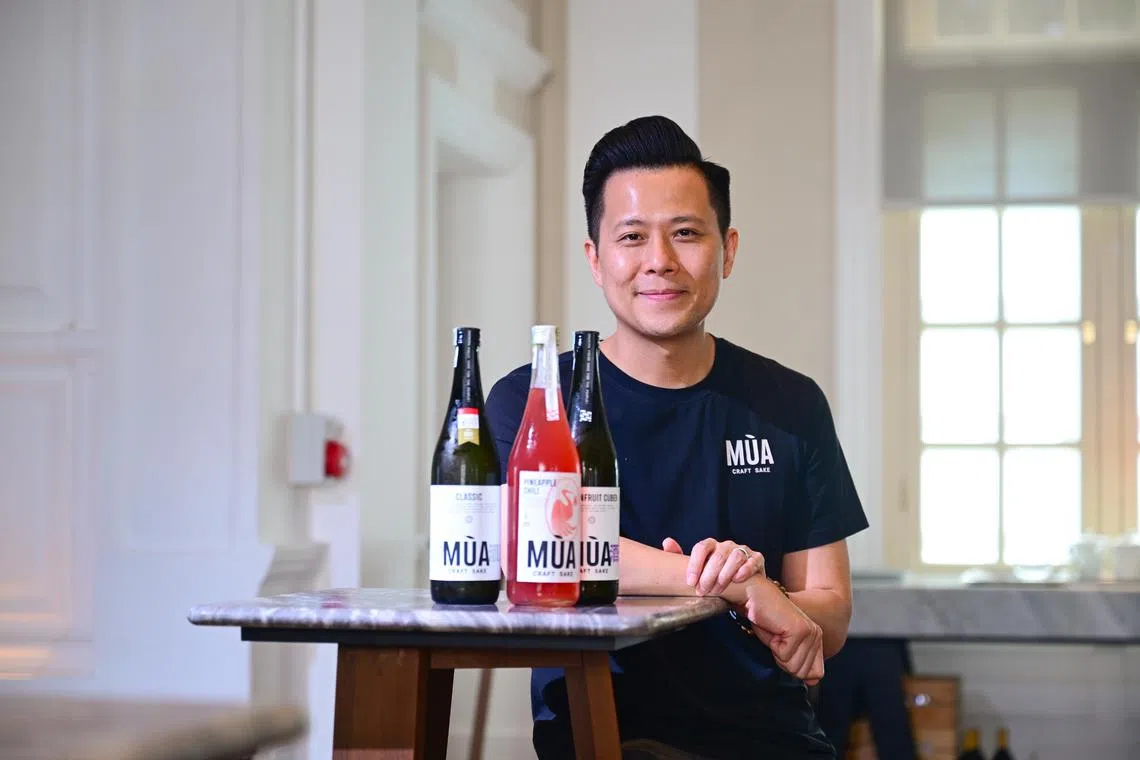
Singapore is the first country outside Vietnam to carry sake produced by Mua Craft Sake, co-founded by Mr Na Dai Kang.
ST PHOTO: AZMI ATHNI
Follow topic:
SINGAPORE – Stick the word “craft” in front of any type of alcohol, and it gains instant cachet.
And with more countries in Asia producing craft beer, wines and spirits, choices for drinkers and diners are very much limitless and borderless.
A sophisticated restaurant city like Singapore is a magnet for these craft alcohol brands.
On June 13, Mua Craft Sake from Vietnam was launched here. Singapore is the first country outside Vietnam to carry its sake.
Home-grown company Coolpotions brings in boutique Korean liquor brands, including Won Soju by Korean-American rapper Jay Park.
These two businesses were born during the Covid-19 pandemic, when the world was in lockdown.
The founders decided to leave their corporate jobs.
With time to think through business plans and to connect with and consult like-minded people internationally through Zoom, they built their companies.
And they got into the market at just the right time – building their businesses at a time when the world was in limbo, so they were ready when business came roaring back after the pandemic.
Melting pot sake
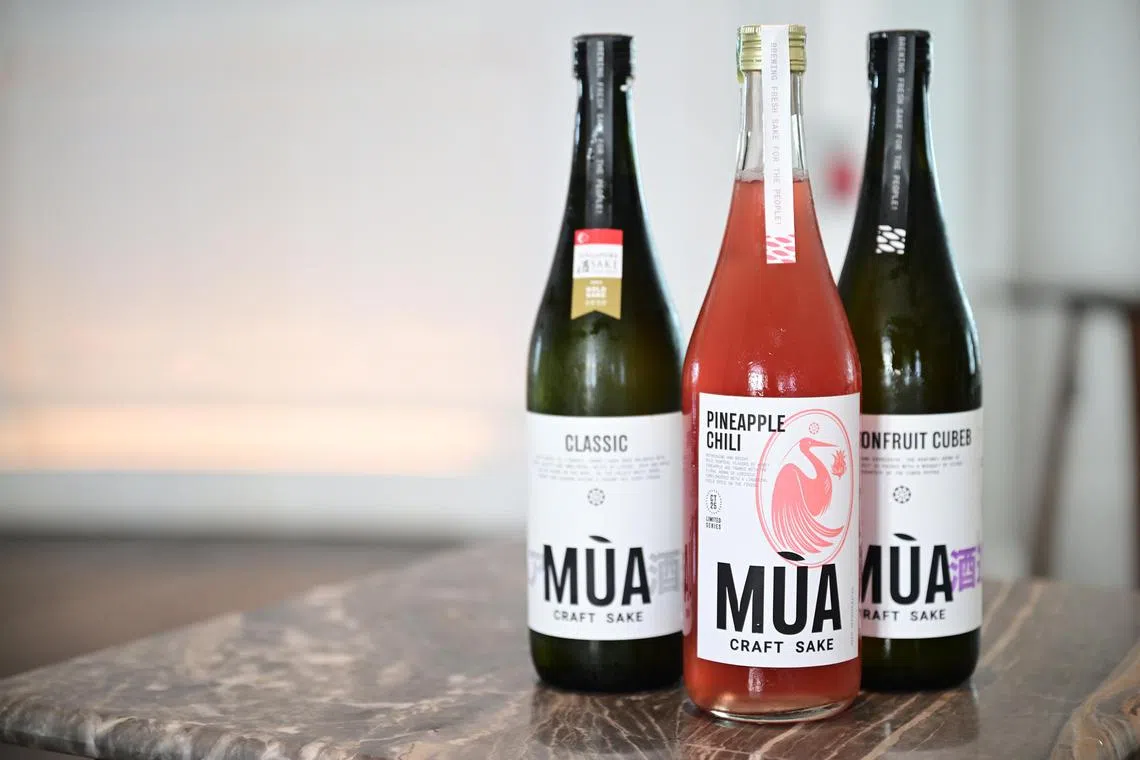
The three expressions of Mua Craft Sake available in Singapore.
ST PHOTO: AZMI ATHNI
Think sake, and some things probably come to mind. Hard-to-decipher labels all in Japanese. Rice polishing ratios, which refer to how much of a grain of rice is removed before the rest is used to make sake. And flavoured sake? No way.
Mua Craft Sake upends all that. It is made in Vietnam, with rice grown there. The labels are in English. There is no polishing ratio the company makes public. The sake is available both in bottles and on tap. And it comes in flavours.
In addition to the Classic ($60 for a 720ml bottle), Singapore also carries Passionfruit Cubeb ($60 for a 720ml bottle), flavoured with the fruit and cubeb peppercorns; and Pineapple Chili ($65 for a 720ml bottle), made with honey pineapples. These are available online from www.thesakecompany.com
Mua’s sake is also available on tap at Almost Famous Craft Beer Bar in Chijmes, American Taproom in Waterloo Street and Geylang Road, Orh Gao Taproom at Serene Centre, Ziggy Zaggy in Kampong Bugis and Yeast Side in Farrer Park.
Co-founder Na Dai Kang, 42, who was in Singapore recently for the launch, says the business started, in part, because of the explosion of Japanese restaurants in Ho Chi Minh City, where he is based.
In 2015, he adds, there were about 200 Japanese restaurants there. That more than tripled to 700 in 2018 to 2019, and he estimates there are more than 2,000 Japanese restaurants there now.
He and his friends – one of whom owns East West Brewing, a microbrewery in Ho Chi Minh City; and another who owns Viet Capital Asset Management also in the city – thought that selling sake made perfect sense.
The initial idea was to source the sake from Japan and have it bottled for them.
Covid-19 hit and Mr Kang, who was born and raised in Canada and has lived in Vietnam since 2005, decided to quit his job in a sports entertainment company in 2021.
After a career in advertising, marketing and media, he figured it was time to do what he really wanted, which was to be in the food and beverage business.
With time on his hands, he did research. He found out that Vietnam is the ninth-largest importer of sake. And he had the opportunity to talk to sake-makers in Japan, the United Kingdom, the United States and France.
“Everything is a blessing in disguise,” he says of being stuck at home because of the pandemic.
“Craft breweries were responsive. They were sharing with us as much as they could. The Japanese breweries thought we were crazy. We don’t have the right water and materials.”
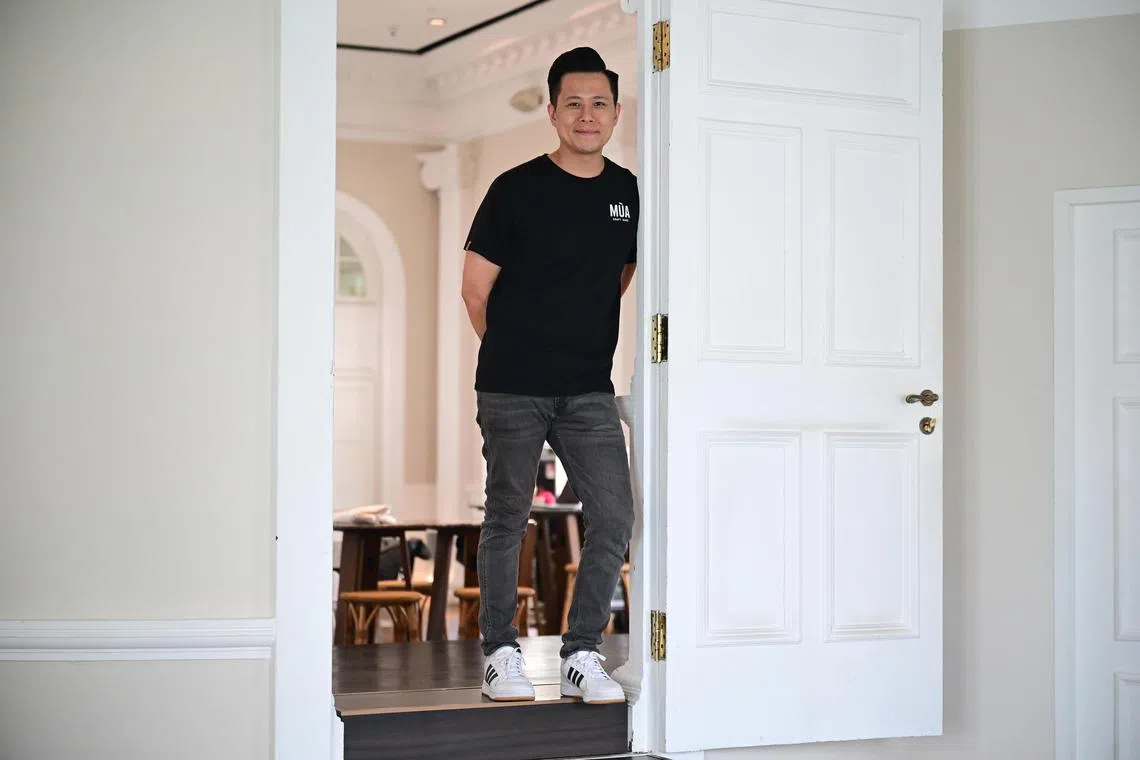
Mr Na Dai Kang of Mua Craft Sake.
ST PHOTO: AZMI ATHNI
In the end, Mua, which means “seasons” in Vietnamese, partnered with Heiwa Shuzo Sake Brewery from Japan to set up the brewery, which opened in November 2022.
Its brewmaster Shibata Hidemichi designed the brewery, trained the team and supervised the making of the sake. Heiwa also sent over technical drawings for sake-making equipment and Mua had them made in Vietnam.
Mr Kang says he had imported rice seeds from Japan to grow in Vietnam, but the climate was not conducive. So most of the sake is made with a variety of Japonica rice grown in Vietnam.
Although the sake is made using traditional methods, at the storage and maturation stage, Mua adds flavours – fresh pressed fruit juices and extracts from spices and herbs.
“We wanted to create a product that will resonate with the Vietnamese,” Mr Kang says.
“Look at the market globally, everyone is looking for something lighter, with refreshing and fruity flavours. We are trying to popularise sake, not to copy centuries of history and craftsmanship.”
The set-up cost was a seven-figure sum in US dollars, he says. Initially, the brewery was producing 3,000 litres of sake a month, and that has doubled to 6,100 litres a month. Mr Kang says there is room to triple production on the site.
The current brewmaster, who joined in September 2023, is Mr Josh Hembree, 42. He started out brewing craft beer and went on to make craft sake. In 2016, he set up Setting Sun Sake in Southern California, but closed it because of the pandemic.
Opening a taproom, which also serves food to go with the sake, was crucial, adds Mr Kang.
He is looking to open another one in Hanoi, in addition to the one in Ho Chi Minh City.
“It’s important for people to come and experience it,” he says. “Some have never had it cold. We can’t put it in a supermarket and assume people will buy it.”
He is looking to take his sake to more places – Malaysia, Hong Kong and Australia, among them, and Mua has also sent samples to the US.
The sake has attracted interest even in Japan, he adds. Mua has hosted Japanese brewers and bar owners. A sake bar owner from Tokyo shipped back 36 bottles of the Pineapple Chili sake.
“They sold out in one month,” Mr Kang says.
Korean potions
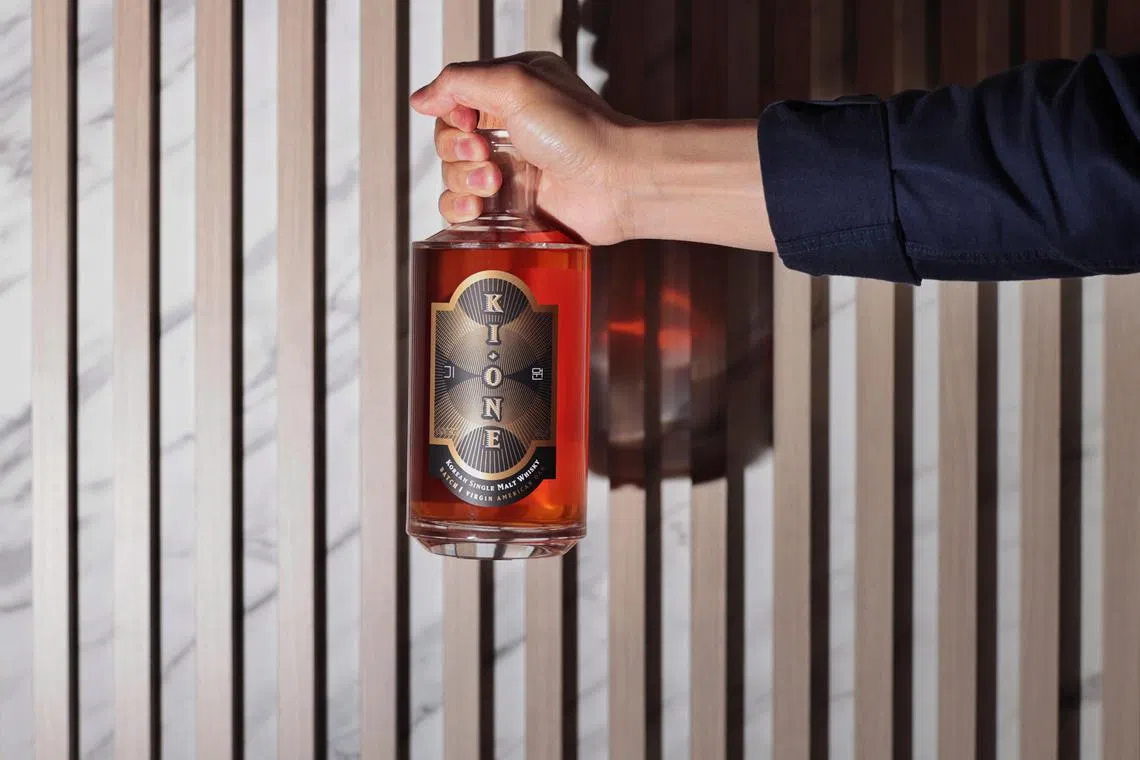
Home-grown company Coolpotions brings in Ki One, South Korea's first single malt whisky.
ST PHOTO: HESTER TAN
If Korean craft liquor seems to be everywhere in restaurants and bars, it might just be because of home-grown company Coolpotions.
It brings in boutique gin brands Kori Gin and Buja Gin; and Ki One, from South Korea’s first single-malt whisky distillery.
There is also Andong Soju by Cho Ok-hwa, South Korea’s National Grand Master Cook No. 20, who makes the soju using a secret traditional method she has passed down to her son and daughter-in-law; and Won Soju by Korean-American rapper Jay Park, which will launch here later in 2024.
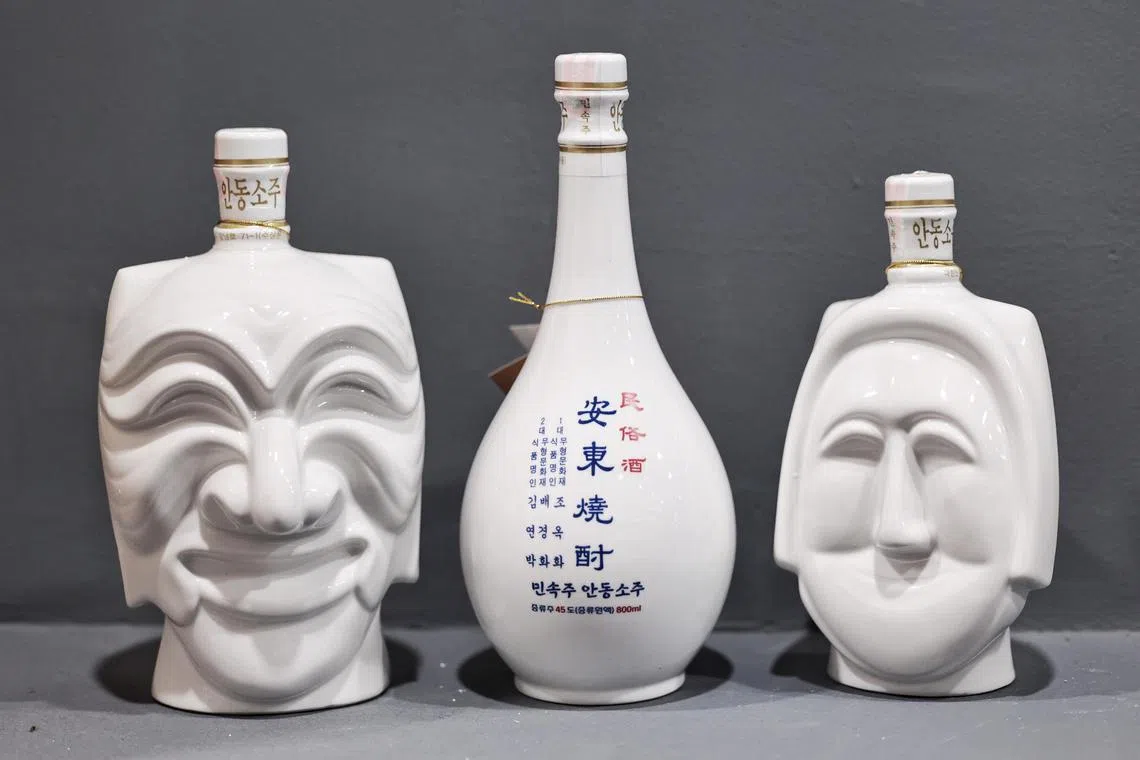
Home-grown company Coolpotions brings in Andong Soju by Cho Ok Hwa, South Korea’s National Grand Master Cook No. 20, who makes the soju using a secret traditional method.
ST PHOTO: HESTER TAN
Mr Dharma Wang, 36, managing director of Coolpotions, started the Singapore company in 2020, when the Covid-19 pandemic was taking hold worldwide.
He had worked at Asia Pacific Breweries and Lubritrade Group, selling beer, wine and spirits. With the expected job cuts looming, he decided to go it alone and, as he says, “start something on my own”. He turned to South Korea.
“I didn’t need to think too hard,” he says. “I used to travel to South Korea for work, and I sold soju and Korean beer in Singapore, so I know the restaurant owners. Slowly, I got acquainted with Korean cuisine and flavours.”
He estimates there are about 500 Korean restaurants in Singapore, with the number growing.
Owners were looking to buy soju, so he started his own soju brand, Chuga, which in Korean means “to add”. Because of pandemic travel restrictions, he sourced for soju producers online and got samples from them. He settled on a manufacturer which uses apple and sugarcane spirits for its soju, instead of the more common potato and tapioca spirits.
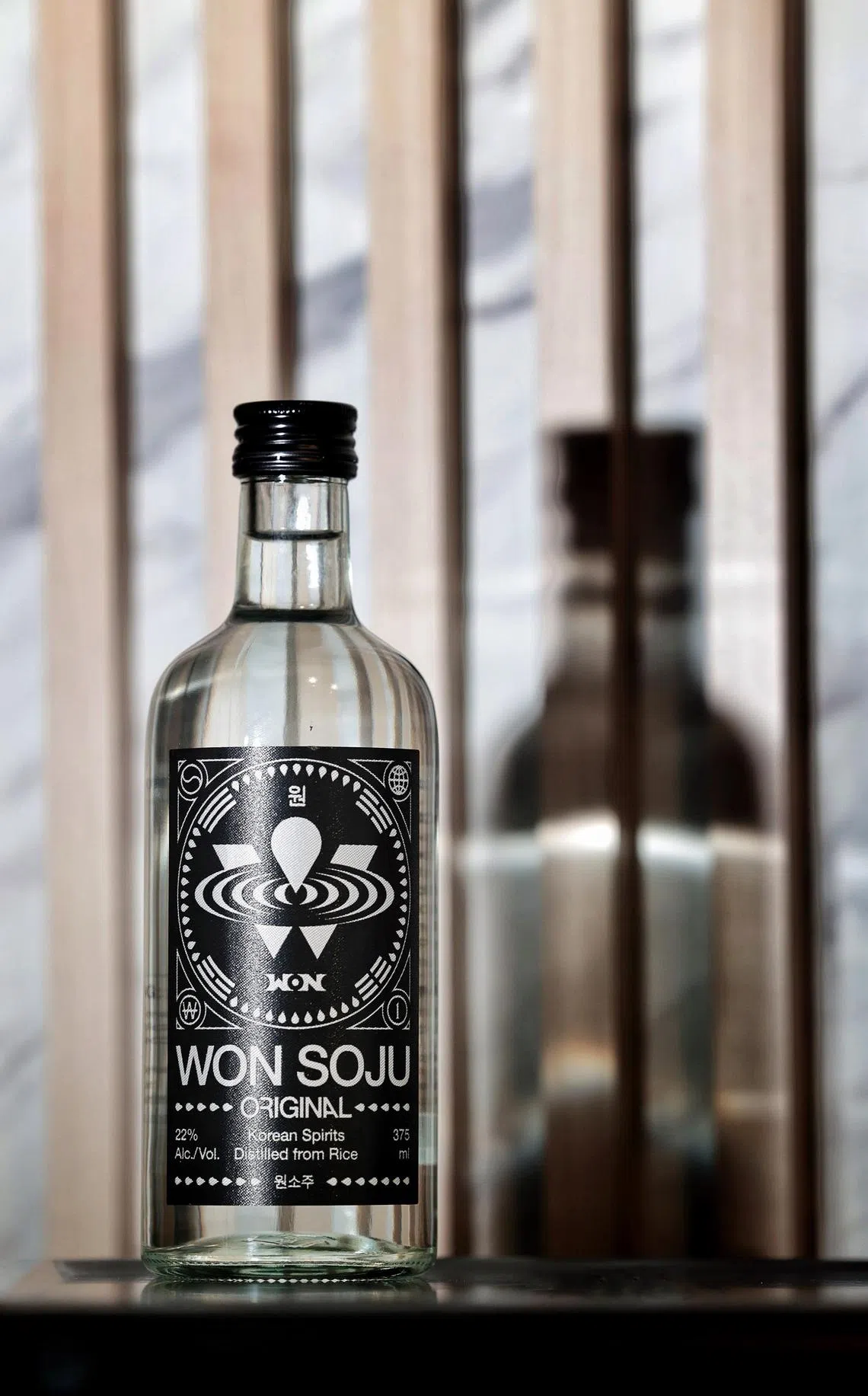
Coolpotions is expected to launch Won Soju by Korean-American rapper Jay Park later this year
ST PHOTO: HESTER TAN
In September 2020, he launched Chuga soju. The brand’s makgeolli followed in 2021. Chuga is the biggest earner in the Coolpotions portfolio and is available in restaurants, bars, clubs, major retailers and e-commerce platforms.
The soju, makgeolli and craft spirits that the company carries are also available at Vintage & Vine at 10 Lorong 12 Geylang.
Through the soju manufacturers and other business friends, he met the Korean craft liquor producers whose potions he now carries. These include the father-and-son team behind Buja Gin, set up in 2020. Its gin is made with botanicals grown in South Korea, including juniper berries, mint and omija, a flavourful berry that grows on vines.
These boutique offerings are what the market is looking for now, he says.
“I saw the fast-growing customer base of restaurants,” he says.
“Many of them are upmarket, not mass market barbecue places serving only soju and beer. They have Michelin stars, like Nae:um. There are also barbecue restaurants that focus on premium meats. Many were importing their own liquor, but it is difficult because of the logistics. And that is not their core business.”
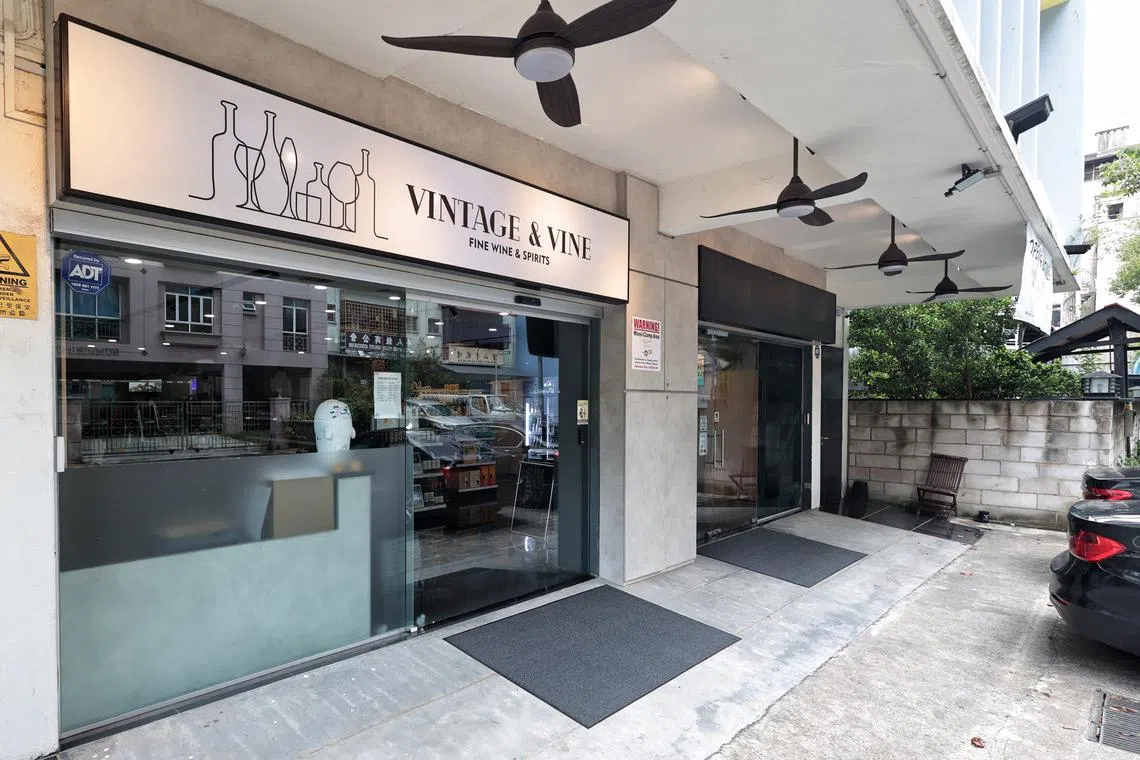
Vintage & Vine at 10 Lorong 12 Geylang.
ST PHOTO: HESTER TAN
From his travels, he has seen how the South Koreans are taking to their traditional spirits.
“Ten years ago, cocktail bars in Korea carried all international spirit brands,” he says. “Now, Koreans are experimenting with traditional Korean and craft liquors in their cocktails.”
His customers in Singapore are not limited to Korean restaurants either. These include Vue at OUE Bayfront, Dempsey Cookhouse, Kinki Restaurant + Bar at Customs House, HighHouse at One Raffles Place and Close Shave in North Canal Road.
“We are selling these products in cocktail bars in Singapore and in premium restaurants that are not Korean,” he says.
“The Koreans, in recent times, have proven they are not just a pale cousin of the Japanese. It’s a country of just 50 million people, but their passion shines through their products, whether it is ramyeon, seaweed, cars or liquor. They have built a global Asian culture.”
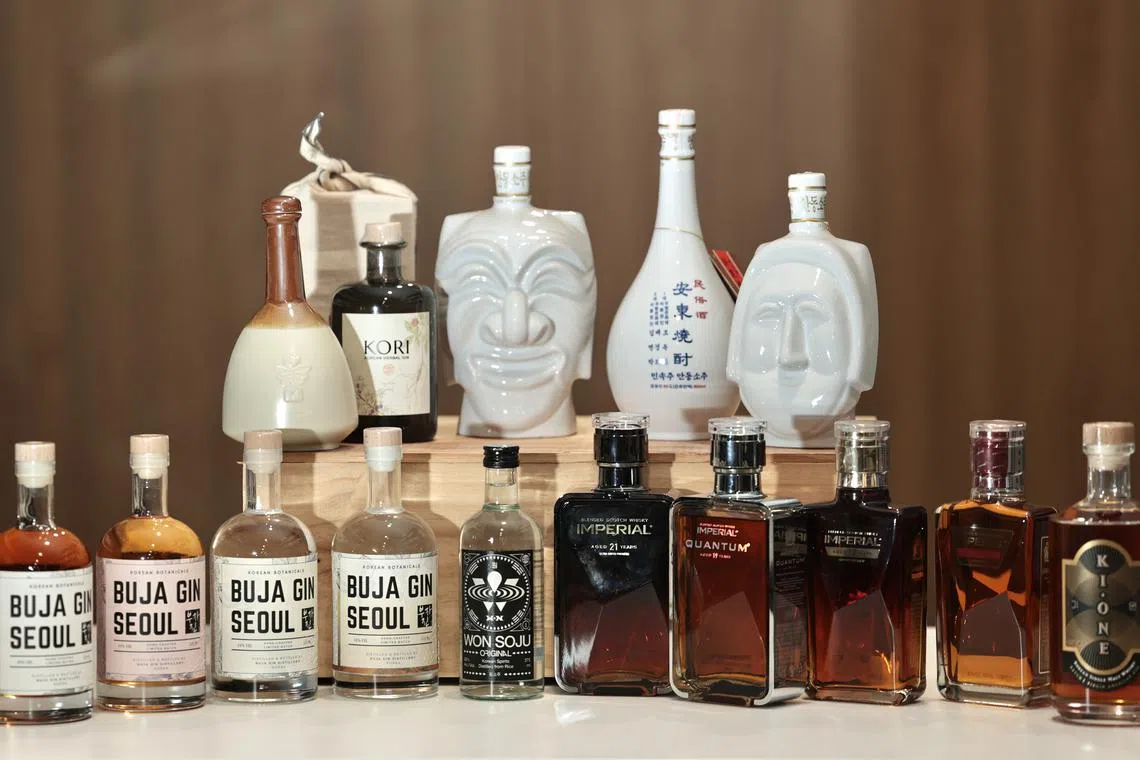
The array of unique Korean liquor brought in by home-grown company, Coolpotions.
ST PHOTO: HESTER TAN
The next big thing in K-liquor, he thinks, is whisky, adding that retail giant Lotte is building a whisky distillery in Jeju. Another retail giant, Shinsegae, is doing the same on the island.
He says: “You see the Koreans becoming like the Japanese in terms of whisky. The Japanese led the way, showing that it isn’t just the Scots who make good whisky. Korea’s time will come.”


